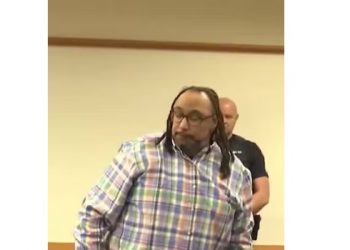Blount County, Tenn. — A former Blount County Schools employee has been sentenced to six months of supervised probation after pleading guilty to multiple counts of misdemeanor assault by physical contact involving students. Joseph Michael Dalton, who had worked in the district, entered his guilty plea in September to five counts of offensive touching at two local schools.
Dalton’s sentence comes after a legal process that raised questions about the handling of allegations and the potential for the case to be expunged from public records. Despite the objections from the state, the judge approved Dalton’s request for a judicial diversion. Judicial diversion is a form of probation granted to first-time offenders who plead guilty, providing them with an opportunity to have their charges removed from their criminal record upon successful completion of the probationary period.
As part of Dalton’s probation, he will be required to undergo a psychosexual evaluation and comply with any recommendations stemming from the results of the evaluation. If Dalton successfully completes the conditions of his probation, including the evaluation, the case may be expunged, leaving no permanent criminal record.
However, the situation surrounding Dalton’s sentencing is more complex than it may initially appear. Despite the judicial diversion’s typical use for first-time offenders, Dalton’s history includes previous investigations into similar allegations. In the days following Dalton’s guilty plea, 6 News obtained his personnel file from Blount County Schools, as well as investigative records from the Blount County Sheriff’s Office. These documents revealed that Dalton had been involved in prior incidents of concern, although no charges were filed at the time.
The fact that Dalton had been previously investigated raises concerns about whether a judicial diversion is an appropriate option for someone with a history of alleged misconduct. Advocates for public safety and child protection argue that individuals who have been investigated for similar offenses should be subject to more scrutiny, especially when the safety of students is involved.
The judicial diversion program is designed to allow individuals to learn from their mistakes, but for many, Dalton’s case raises questions about whether it offers a fair chance for rehabilitation—or whether it places the community, particularly students, at greater risk.
Dalton’s probation will be closely monitored, and his compliance with the court’s requirements will determine whether the case is ultimately removed from public records. Until then, the case continues to stir debate about the balance between rehabilitation and the protection of vulnerable populations, especially in educational settings.
This case is expected to remain a point of discussion as more details emerge about Dalton’s past and the ongoing implications for Blount County Schools.













